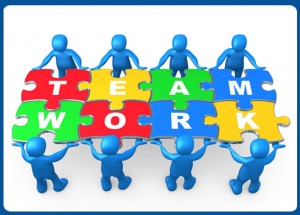The Dreaded Group Project…maybe teamwork doesn't need to be all bad!
In my life I have spent a lot of time and energy being part of many different types of teams. From work settings, to social clubs, and even living arrangements, the commonality between all of them is the need to work with and get along with others. When I reflect back on these experiences being collaborative, a leader, positive, humble, and building rapport with every teammate has drastically enhanced my team experiences across the board, particularly in the work force.
Being collaborative is more than just communicating with our team; it’s really focusing on the strengths of each individual on our team to effectively allocate roles. Have faith that they will execute to the best of their ability, bringing the team spectacular results. Collaboration is also closely linked with leadership.

Being a part of a team and leading a team aren’t very different roles. This is not to confuse leadership with being bossy. On the contrary, leadership is about providing support for everyone on the team. Contributing in the workload, being the first to point out a job well done by your fellows, and rather than focusing on the faults of our teammates in the past, focusing on how we can help them improve in the future.
As already largely touched upon, being positive is a central key to being a productive team player. If we personally view adversity and challenges as opportunities rather than problems it’ll raise the morale of everyone around us. It’ll change the way our team thinks of adversity. Positivity is like a virus and as teammates it’s our job to make sure to infect everyone around us. We’ve spoken about stepping beyond the call of duty; however it’s also important to know when to bite our tongues as well.
Being bold, courageous, and revolutionary is great. However, we forget to humble ourselves and remember that we’re merely an individual that’s part of a team. It’s essential to reflect constantly, and question whether we’re respecting our teammates boundaries. Furthermore, being humble enough to ask for help when unsure is a strength that’ll gain us respect amongst our colleagues. Everybody has a unique perspective, no matter what their role on the team; they’re worth listening to and considering their thoughts and opinions.
Lastly, we want to build strong relationships with all of our teammates. It’s far easier to work with people who we get along with. So getting to know our team and finding commonalities is going to be a fundamental element to having a spectacular team environment. It’ll also help us appreciate our roles in the team, understanding that we are a crucial key in the overall success of our team. More importantly, it’ll help us find a deep appreciation for the work our teammates do, grasping the immense amount of effort and work being put in by those around us.
As a wise construction worker made out of Lego, named Emmet, noted “Everything is awesome, everything is cool when you’re working on a team.”
What's been the biggest difference for you, when you've had a great group work experience compared to a challenging one? Comment below!
Being collaborative is more than just communicating with our team; it’s really focusing on the strengths of each individual on our team to effectively allocate roles. Have faith that they will execute to the best of their ability, bringing the team spectacular results. Collaboration is also closely linked with leadership.

Being a part of a team and leading a team aren’t very different roles. This is not to confuse leadership with being bossy. On the contrary, leadership is about providing support for everyone on the team. Contributing in the workload, being the first to point out a job well done by your fellows, and rather than focusing on the faults of our teammates in the past, focusing on how we can help them improve in the future.
As already largely touched upon, being positive is a central key to being a productive team player. If we personally view adversity and challenges as opportunities rather than problems it’ll raise the morale of everyone around us. It’ll change the way our team thinks of adversity. Positivity is like a virus and as teammates it’s our job to make sure to infect everyone around us. We’ve spoken about stepping beyond the call of duty; however it’s also important to know when to bite our tongues as well.
Being bold, courageous, and revolutionary is great. However, we forget to humble ourselves and remember that we’re merely an individual that’s part of a team. It’s essential to reflect constantly, and question whether we’re respecting our teammates boundaries. Furthermore, being humble enough to ask for help when unsure is a strength that’ll gain us respect amongst our colleagues. Everybody has a unique perspective, no matter what their role on the team; they’re worth listening to and considering their thoughts and opinions.
Lastly, we want to build strong relationships with all of our teammates. It’s far easier to work with people who we get along with. So getting to know our team and finding commonalities is going to be a fundamental element to having a spectacular team environment. It’ll also help us appreciate our roles in the team, understanding that we are a crucial key in the overall success of our team. More importantly, it’ll help us find a deep appreciation for the work our teammates do, grasping the immense amount of effort and work being put in by those around us.
As a wise construction worker made out of Lego, named Emmet, noted “Everything is awesome, everything is cool when you’re working on a team.”
What's been the biggest difference for you, when you've had a great group work experience compared to a challenging one? Comment below!

